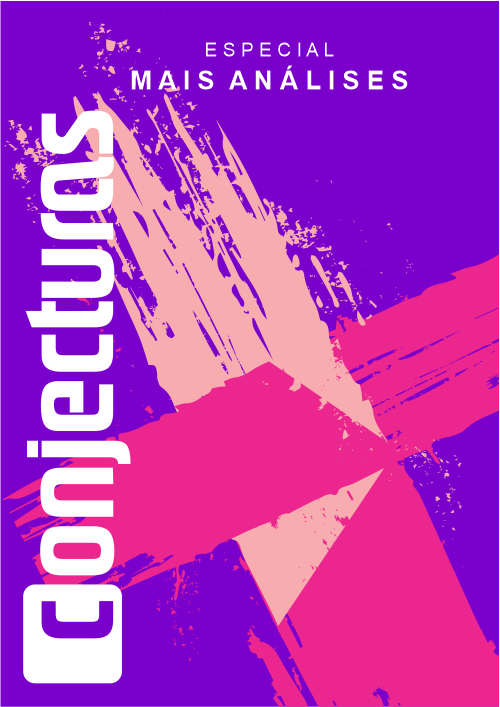Psychologists family mediators – reducing the borders of interculturality
Psicólogos mediadores familiares – reduzindo as fronteiras da interculturalidade
DOI:
https://doi.org/10.53660/CONJ-2155-2Z52Palavras-chave:
Conflito, Mediação Familiar, Interculturalidade, Psicóloga Mediadora, MigraçãoResumo
A mediação familiar tornou-se uma prática multiprofissional e multidisciplinar, de modo que profissionais da saúde mental e da assistência social, como psiquiatras, psicólogos e assistentes sociais e até mesmo profissionais do direito e da justiça, como advogados, têm se interessado e dedicado seus estudos e pesquisas à área. Este trabalho é um excerto da dissertação de mestrado do mesmo autor e foi realizado com o objetivo de dar um pouco mais de destaque à Mediação como método alternativo de resolução de conflitos e também de valorizar e explicar o seu caráter terapêutico preventivo e a importância de ser realizado. por um profissional Psicólogo, no cuidado necessário das relações entre casais e relações parentais interculturais, pois essas relações já enfrentam todas as dificuldades de comunicação e entendimento que vão muito além do “conhecimento e tradução da linguagem do seu parceiro”.
Downloads
Referências
ACHOTEGUI, J. (2000). Migration duels: a psychopathological and psychosocial perspective.
ALTERNATIVE DISPUTE RESOLUTION: MEDIATION AND CONCILIATION Commission on Law Reform November 2010 Available at: https://www.lawreform.ie/_fileupload/reports/r98adr.pdf
AMATUZZI, MM (1989). The rescue of authentic speech: philosophy of psychotherapy and education . Campinas: Papirus.
AZAR, Edward E. (1986). "The Lebanon Case ." In Edward E. Azar and John W. Burton, eds. International Conflict Resolution: Theory and Practice. Brighton, Sussex: Wheatsheaf Books and Boulder: Lynn Rienner
CAHALI, Francisco José. (2018). Arbitration Course: Mediation, Conciliation, Multiport Court. 7th Ed. São Paulo: Revista dos Tribunais, p. 51.
CAHN, Dudley D., (2014). Managing Conflict through Communication. 5th Edition State University of New York, New Paltz.
CAPRA , Fritjof. (1982). The turning point. Science, society and emerging culture.
CHAUÍ, Marilena. (2002). Introduction to the History of Philosophy: From the Pre-Socratics to Aristotle . 2nd ed. Sao Paulo: Company of Letters.
COGO, D.; GUTIÉRREZ, M., HUERTAS, A. (Orgs). (2008). Transnational Migrations and Communication Media. Reports from Barcelona and Porto. Madrid: Los Libros de la Catarata.
DIMENSTEIN, Magda. (2001). The psychologist and social commitment in the context of collective health. Psychology in Study, vol. 6, no. 2, pg. 57-63.
ELLIOT, A .; URRY, J. (2010). Mobile Relationship. In: ELLIOT, A. Mobile Lives. New York: International Library of Sociology.
GULLIVER, PH (1979). Disputes and Negotiations. San Diego, CA: Academic Press.
HIGHTON, Elena I.; ÁLVAREZ, Gladys S. (1996). Mediation to resolve conflicts. Buenos Aires: Ad-Hoc.
ISACCS, William. (1999). Dialogue and the art of thinking together: a pioneering approach to communicating in business and in life. New York: Currency.
LIND, WR (2008). Bicultural and monocultural couples: differences and resources. Doctoral thesis. University of Lisbon, Faculty of Psychology and Education Science.
LOUBACK, CTS (2017). Between tradition and translation: a case study of an association of Brazilian immigrant parents in Spain. Thesis (Doctorate in Clinical Psychology), Pontifical Catholic University of São Paulo, PUC-SP. Sao Paulo.
MATURANA, Humberto (1990) . Emotions and language in education and politics. Belo Horizonte: Publisher of the Federal University of Minas Gerais. Spanish original.
MERLEAU-PONTY, M. (1971). Phenomenology of perception. Trans. Reginaldo di Piero. Rio de Janeiro: Freitas Bastos.
MINUNCHIN, Salvador, FISHMAN, H. Charles. (2007). Family Therapy Techniques, Cambridge. Translation: CLAUDENE KINSH MARIA EFIGÊNIA F. R. MAIA. Belo Horizonte, MG Reimpressão.
MOORE, Christopher W. (2014). The Mediation Process Practical Strategies for Solving Conflict. Fourth Edition, Jossey-Bass A Wiley Brand, San Francisco CA.
NICHOLS, Michael P. , SCHWARTZ, Richard C. (2007). Family therapy: concepts and methods. 7th ed., Porto Alegre: Artmed .
PELUSO, Antônio C. (1997). Presentation, on Family Law and Human Sciences, notebook n. 1, pg. 7.
PEREL, E. (2002). A tourist view of marriage. Challenges, options and implications for cross-cultural couples therapy. In: PAPP, P. (Org.). Endangered couples. Porto Alegre: Medical Arts.
PISCITELLI, A. (2010). Political geography of affection: interest, “love” and migration. In: CARVALHO, Flávio et al (Eds.). Minutes of the 1st SEMINAR ON STUDY 191 ON BRAZILIAN IMMIGRATION IN EUROPE. Barcelona: University of Barcelona, p. 14-22. CD-ROM .
RAMOS, N. (2013). Interculturality(ies) and Mobility(ies) in the European space: living and communicating between cultures. The Overarching Issues of the European Space. Ed. Faculty Letters University of Porto. Pag. 343-360.
ROSENFELD, M.; REUBEN, J.; HAUSEN, S. (2019). Disintermediating your Friends: how online dating in the United States displaces other ways of meeting . PNAS. Proceedings of the National Academy of Sciences, v. 116, no. 36.
UNESCO (2001). Universal Declaration on Cultural Diversity. Paris: Unesco.
UNESCO (2005). Convention on the Protection and Promotion of the Diversity of Cultural Expressions. Paris: Unesco.
UNESCO (2007). Ten Keys of the Convention on the Protection and Promotion of the Diversity of Cultural Expressions. Paris: Unesco.
URY, William; FISHER , Roger. (1981). Getting to yes. New York, Houghton Mifflin Company.
URRY, J. (2007). Mobilities . London: Polity.
Downloads
Publicado
Como Citar
Edição
Seção
Licença
Copyright (c) 2022 Conjecturas

Este trabalho está licenciado sob uma licença Creative Commons Attribution 4.0 International License.



